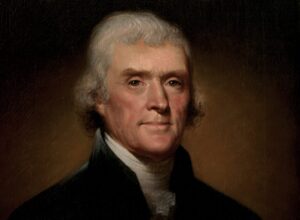Equality for Whom: Revolutionary Considerations of Citizenship and Self-Government
In 2018, my wife and I attended a One Day University event in Charlotte, NC, a program that brings talented lecturers to cities around the country for talks on a wide variety of topics. The day we attended, we heard lectures on college sports’ cultural impact, memorable Broadway musicals, and the Founding Fathers. Historian Carol Berkin, Presidential Professor at Baruch College in New York, delivered the history lecture, a talk entitled What the Founding Fathers Were Really Like. Following her lecture, Berkin responded dismissively to a question about what the Framers said about slavery in the Convention of 1787, answering, “Not a word.” I turned to my wife and said in a voice too loud for her comfort, “That’s not true.”
I don’t think Berkin heard me. But she did pause and qualify her response, saying the framers were aware that slavery was incompatible with freedom and equality. In fact, they discussed the contradiction at length. During the debates over the slave trade, several delegates to the Constitutional Convention spoke on the immorality of enslaving others. Luther Martin argued that slavery “was inconsistent with the principles of the revolution.” John Dickinson agreed that the practice was “inadmissible on every principle of honor.” And James Madison, himself an owner of enslaved persons, acknowledged “that we have seen the mere distinction of color made in the most enlightened period of time, a ground of the most oppressive dominion ever exercised by man over man.” The framers clearly recognized the hypocrisy of proclaiming equality in a land that preserved slavery.
But what about earlier, in the 1770s, when the call for independence was first answered? Did the Continental Congress recognize that same hypocrisy in July of 1776 when they declared to the world that “all men are created equal?” And, did others, speaking for women, African Americans, and religious minorities, asking, “What about us?”
The documents in Volume 1 of Documents and Debates in American History and Government Chapter 6: Revolutionary Considerations of Citizenship and Self-Government enable students to explore this essential question about the American Founding. They illustrate a debate about “who would and would not benefit from the new nation’s commitment to the proposition of human equality.” They demonstrate that some voices spoke out for women’s equality, religious freedom and the emancipation of enslaved persons, from the nation’s very beginnings.
At Teaching American History, we believe students best understand history when they are encouraged to dive into the primary sources, closely reading the authors’ words and putting their questions to those authors themselves. When they directly engage documents, students reach their own conclusions about the choices made by Americans of the past. We encourage you to engage your students in a close reading of these documents as their authors debate the question: who should be included among the “self-governing citizens” of the United States?
Documents in this chapter include:
- John Adams to Abigail Adams and James Sullivan, March 31–May 26, 1776
- Celebrations of American Independence in Boston and Watertown, Mass., July 18, 1776
- To The Honorable Counsel & House of Representatives for the State of Massachusetts Bay in General Court assembled, January 13, 1777
- Thomas Jefferson, Notes on the State of Virginia, 1781–1782
- Petition of the Philadelphia Synagogue to the Council of Censors of Pennsylvania, December 23, 1783
- Benjamin Rush, An Enquiry Into the Effects of Spirituous Liquors upon the Human Body, and Their Influence upon the Happiness of Society, 1784
We have also provided audio recordings of the chapter’s Introduction, Documents, and Study Questions. These recordings support literacy development for struggling readers and the comprehension of challenging text for all students.
Teaching American History’s We the Teachers blog will feature Documents and Debates with their accompanying audio recordings each month until recordings of all 29 chapters are complete. In today’s post, we feature Volume I, Chapter 6: Revolutionary Considerations of Citizenship and Self-Government. On November 24, we will highlight Chapter 21: What Caused the Great Depression from Volume II of Documents and Debates in American History. We invite you to follow this blog closely so you will be able to take advantage of this new feature as the recordings become available.



